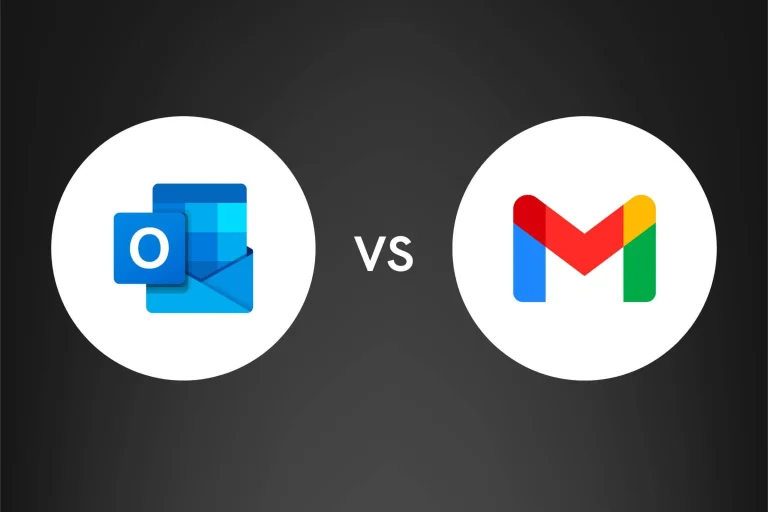As technology evolves, so does how we use it to optimise our search engine rankings. In this article, you’ll discover what SEO Meta Data & Tags are, why they are essential for SEO purposes and how to use them effectively. Find out more about these elements’ impact on your website’s visibility in search engine results!
Introduction to SEO Meta Data & Tags
SEO metadata and tags may seem like complex concepts, but they are actually quite simple. In essence, SEO metadata is the information that search engines use to index and rank your website. This includes things like your page title, keywords, and description. SEO tags are HTML tags that help control your website’s appearance in search engine results pages (SERPs).
While SEO metadata and tags may seem like separate entities, they are actually quite interrelated. How you craft your metadata will directly impact how well your website ranks in SERPs. Likewise, the right mix of SEO tags can help improve your website’s visibility and click-through rate.
With that said, let’s take a closer look at each of these concepts so you can better understand how to use them to your advantage.
What is Meta Data?
When it comes to SEO metadata and tags, there is a lot to know and understand. But don’t worry; we are here to help! This essential guide will cover everything you need to know about SEO metadata and tags, including what they are, why they are important, and how to use them effectively.
So, what exactly is metadata? Metadata is information that describes other data. It helps search engines better understand the content on your website so that they can index it properly and make it more visible in search results.
There are two types of SEO metadata: tags and attributes. Tags are keywords or phrases that describe the content on your page. Attributes are additional pieces of information about your page, such as the author’s name or the date the page was published.
Both tags and attributes are important for optimising your website for search engines. They help search engines understand your website and how it should be classified. This allows them to show your website in relevant search results and improve your chances of being found by potential customers.
Add SEO metadata and tags to your website’s code to start. If you need help with how to do this, contact your web developer or check out our helpful resources below. Then start incorporating relevant keywords and phrases into your tags and attributes to help improve your website’s visibility in search results!
How Does It Affect SEO?
SEO metadata is the information that search engines use to index and ranks your website. This includes your page title, description, keywords, and metadata. Tags are a way of categorising this information so that search engines can easily find and index it.
Using tags can help improve your website’s SEO by making it easier for search engines to find and index your content. They can also help you to organise your content better, making it easier for visitors to find what they’re looking for.
However, there are a few things to remember when using tags. First, don’t stuff your tags with too many keywords – this will make your site look spammy and could get you penalised by Google. Second, ensure that your tags are relevant to the content on your page. Using irrelevant tags will just confuse search engines and could result in lower rankings.
Benefits of Using Meta Data & Tags
Regarding SEO, metadata and tags are some of the essential elements. They help search engines understand your website and how they can best serve your audience. Here are just a few of the many benefits of using metadata and tags:
1. Improve Your Search Engine Rankings
One of the main benefits of using metadata and tags is that they can help improve your website’s search engine rankings. By including relevant keywords in your metadata and tags, you can make your website more visible to potential customers who are searching for those terms.
2. Drive More Traffic to Your Website
In addition to improving your search engine rankings, using metadata and tags can also help drive more traffic to your website. For example, when potential customers see your website pop up in their search results, they will learn more about your offer.
3. Make Your Website More User-Friendly
Another benefit of using metadata and tags is that they can make your website more user-friendly. Including relevant keywords in your tags can help users find the information they’re looking for more easily. This can improve their overall experience on your site, leading to more conversions or sales.
4. Increase Your Website’s Reach
Finally, metadata and tags can also help increase your website’s reach. This is because search engines use this information to determine where to list your page in their search results. By optimising your metadata and tags for the right keywords, you can make sure that your website is appearing higher up in the rankings for more relevant searches.
What Are the Different Types of Metadata?
Metadata is data that describes other data. In the context of SEO, metadata is code that provides information about a web page to search engines. This code includes tags used to describe the page’s title, description, and keywords.
There are three types of metadata:
- Title tags are the most important tags, as they tell search engines what the page is about. The title tag should be placed within the <head> section of the code and include the page’s main keyword or phrase. For example: <title>What Is SEO?</title>
- Meta descriptions provide a brief summary of what the page is about. They should be placed within the <head> section and should not exceed 160 characters. For example <meta name= “description” content= “An essential guide to understanding and using SEO metadata and tags”>
- Meta keywords are a list of relevant keywords for the page that search engines can use to index it. They should be placed within the <head> section and separated by commas. For example: <meta name= “keywords” content= “SEO, metadata, tags”> SEO, Search Engine Optimization, Digital Marketing.
How to Create Effective Meta Data & Tags
SEO metadata and tags are essential for any website or blog that wants to rank high in search engine results pages (SERPs). Metadata is the code that tells search engines what your website or blog is about, and tags are the labels you use to describe your content.
To create effective metadata and tags, you need to understand what they are and how they work. Then, you can use this knowledge to create metadata and tags that will help your website or blog rank higher in SERPs.
1. Understand What Meta Data and Tags Are
Metadata is a type of HTML code that search engines use to understand the content of a web page. It includes information such as the title, description, keywords, and other elements that help search engine robots determine what your site or blog is about. Tags are labels or categories you use to describe your content and make it easier for search engine robots to recognise it.
2. Research Keywords Related to Your Content
Researching relevant keywords is essential when creating effective metadata and tags. Use keyword research tools like Google Keyword Planner, Ubersuggest, Moz Keyword Explorer, or SEMrush to find relevant keywords related to your content. Make sure you use long-tail keywords that are specific to your topic. Also, aim for keywords with high search volume but low competition, as these will be easier for you to rank for in SERPs.
3. Write an Engaging Title Tag
The title tag is one of the most important metadata elements, as it tells search engine robots what your content is about in just a few words. It should be at most 70 characters long and packed with the most relevant keywords related to your topic. Ensure your title is engaging and encourages people to click on it when it appears in SERPs.
4. Create an Accurate Meta Description
The meta description is a sentence or two that provides more detail about the content of your webpage or blog post. Keep it between 150-160 characters long, and ensure it accurately describes your page’s content. Use keywords in the meta description, but don’t keyword stuff.
5. Include Relevant Tags
Tags are labels you assign to your content to make it easier for search engine robots to recognise and categorise it. When creating tags, use keywords related to your content but don’t use too many, as this could be seen as keyword stuffing by search engine robots. Try to limit yourself to 10-15 tags per page or post.
6. Optimise Your Content for Search Engines
Metadata and tags are important, but they will only be effective if your content is optimised for search engine robots. This includes ensuring all images have alt text, using keyword-rich headings and semantic markup, writing descriptive URLs, and including internal links with relevant anchor text. All of these elements will help search engine robots understand your content and improve your ranking in SERPs.
Following these steps, you can create effective metadata and tags to help your website or blog rank higher in SERPs. Remember to keep the titles, descriptions, and tags concise, descriptive, and packed with relevant keywords. Also, ensure your content is optimised for search engines if you want to achieve the best results.
Best Practices For Optimising Your Meta Data & Tags
When it comes to optimising your website for search engines, metadata and tags are two of the most important elements. Metadata is the information used to describe your web page, while tags help identify and classify your content.
Here are some best practices for optimising your metadata and tags:
1. Use keyword-rich titles and descriptions.
Make sure your titles and descriptions include relevant keywords that describe your content. This will help search engines better understand what your page is about and index it accordingly.
2. Use unique and accurate tags.
Tags should be used to describe your content accurately. Using the same tag for different pieces of content can confuse search engines and hurt your ranking. Likewise, using inaccurate or irrelevant tags can also damage your ranking.
3. Keep your tags short and sweet.
Search engines prefer shorter tags that are direct and to the point. For example, search engine crawlers often ignore longer, drawn-out tags.
4. Don’t stuff your tags with keywords.
Using too many keywords in your tags (known as keyword stuffing) will not only turn off readers but also get you penalised by Google. A good rule of thumb is to use a maximum of 3-5 keywords per tag.
Conclusion
SEO metadata and tags are essential for any website that wants to optimise its search engine ranking. Knowing how this information affects your website’s visibility can help you craft better content and ensure that the right people are viewing it. With a little practice, anyone can use these tools to create a buzz around their site and increase its overall reach. Whether you’re just starting out or already have an established presence online, making sure that your metadata and tags are up-to-date will help ensure success in the long run.

















